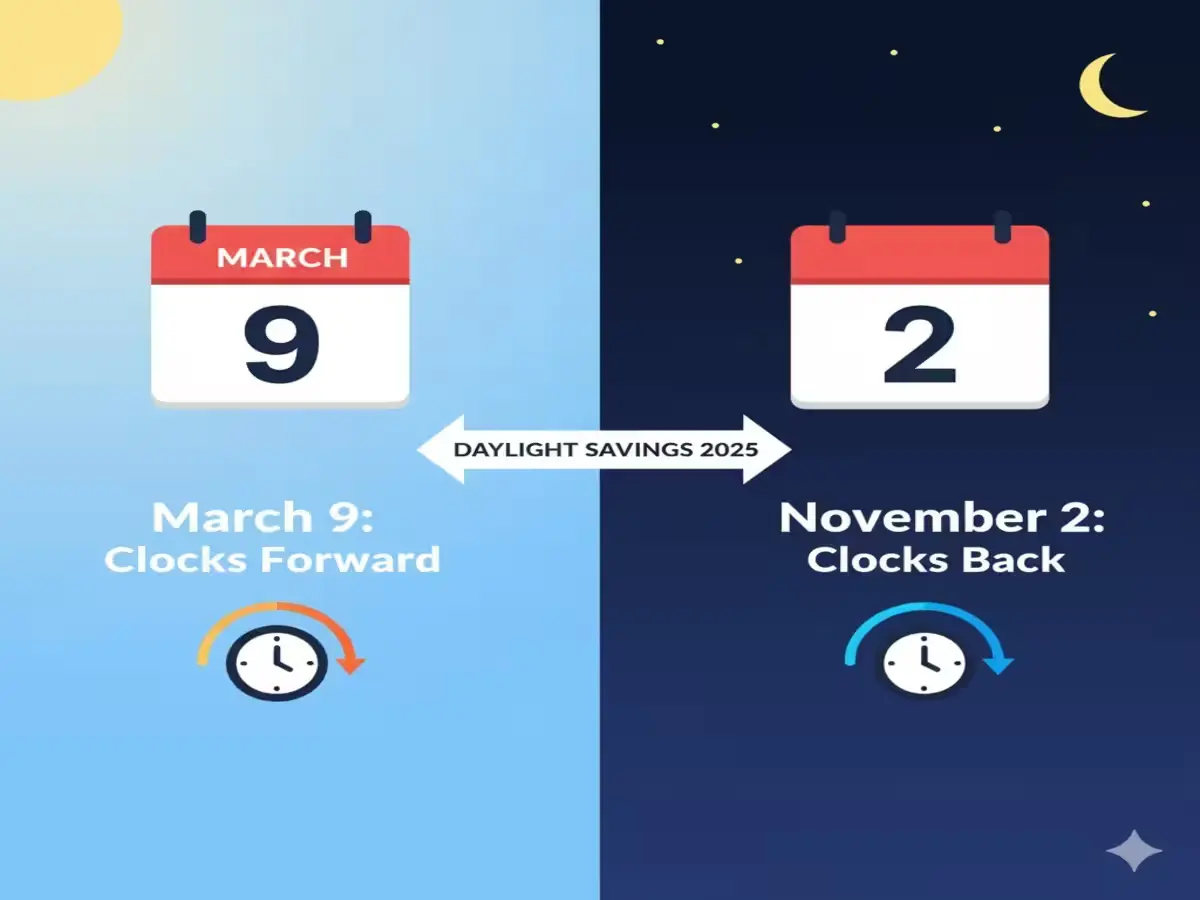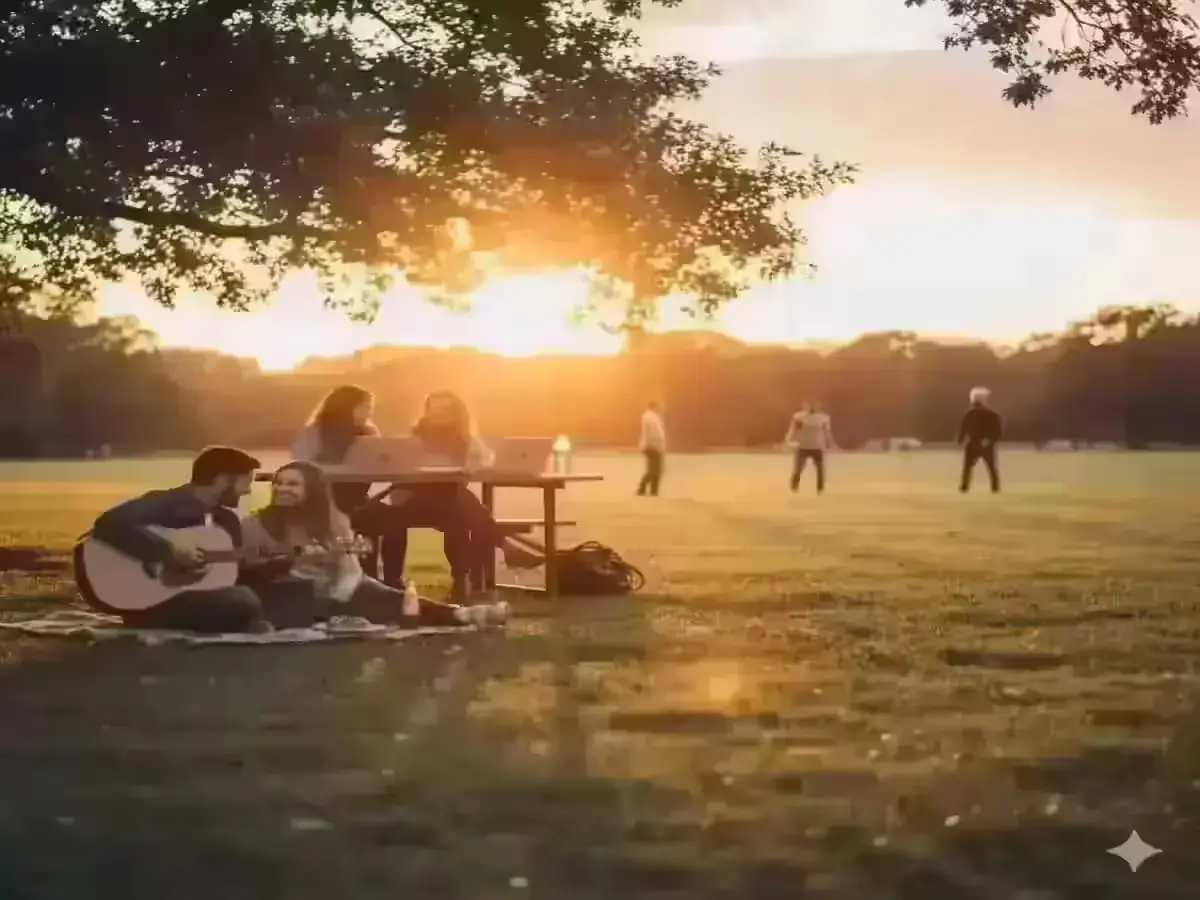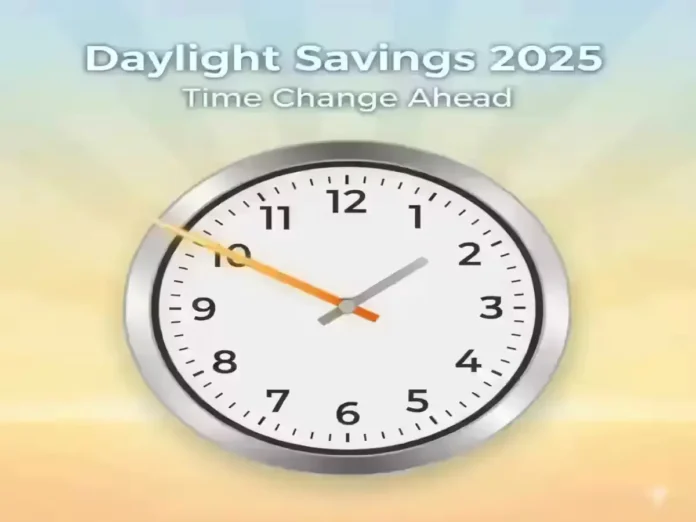Daylight Savings 2025: Here’s When the Clocks Change and What It Means
Daylight Savings 2025: Full Details and Key Dates
Every year, millions of people adjust their clocks forward or backward for Daylight Savings Time. In 2025, that familiar shift returns — and it continues to spark discussion about its impact and purpose.
For most regions in the United States, Daylight Savings Time 2025 begins on Sunday, March 9, when clocks move forward by one hour at 2:00 a.m. This change brings longer daylight hours into the evening. The cycle continues until Sunday, November 2, 2025, when clocks are set back by one hour to resume standard time.

The original goal of DST was to make better use of daylight during the warmer months. While supporters believe it helps save energy and enhances evening activity, critics argue it disrupts sleep, productivity, and daily routines.
From a business perspective, these changes often influence consumer and market behavior. Retail sales may rise slightly as longer evenings encourage more outdoor activity and shopping. Meanwhile, financial markets and international businesses must coordinate closely to adjust for time zone differences during this transition.
To make the shift easier, consider adjusting your sleep pattern a few days before March 9. Check that all clocks — especially on travel devices or older electronics — are updated, and reconfirm schedules for meetings or travel that cross time zones.

Frequently Asked Questions – Daylight Savings 2025
When does Daylight Savings Time start in 2025?
Daylight Savings Time begins on Sunday, March 9, 2025, when clocks move forward one hour at 2:00 a.m.
When does Daylight Savings Time end in 2025?
It ends on Sunday, November 2, 2025, when clocks are set back one hour to return to standard time.
Why do we still observe Daylight Savings Time?
The main reason is to extend evening daylight hours during warmer months, potentially saving energy and supporting outdoor activities.
Does every state in the U.S. observe Daylight Savings Time?
No. States like Hawaii and most of Arizona do not observe DST, while others continue to follow it as per federal law.
Will Daylight Savings Time ever become permanent?
Several proposals exist to make DST permanent, but as of 2025, no nationwide law has been passed. Some states have approved it conditionally, pending federal approval.

